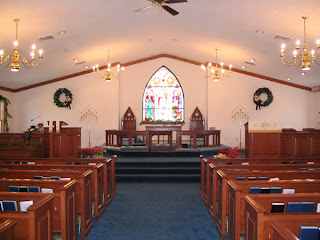By Richard Allen Greene, CNN
Hilmarton, England (CNN) - A little English village church has just made a remarkable discovery.
The ornate old Bible that had been sitting in plain view on a table near the last row of pews for longer than anyone could remember is an original King James Bible - one of perhaps 200 surviving 400-year-old original editions of arguably the most important book ever printed in English.
In fact, the Bible at St. Laurence Church in Hilmarton, England, was sitting right under a hand-lettered sign saying it was an original.
The sign said it had been found in "the parish chest" in 1857, that the cover had been added, and that it was the second of the two impressions published in 1611 - the year of first publication.
But no one knew whether to believe it, parish council member Geoff Procter said. As the anniversary of publication in 1611 approached, they decided it was worth investigating.
"We had no way of knowing whether it really was a 1611 Bible so we had to get it verified somehow," he said.
He and two other church members took it to a specialist, the Rev. David Smith at the Museum of the Book in London.
Smith knew immediately what he was looking at, Procter said.
"We put it on his table and he opened it and immediately he said, 'Yes, this is a 1611 Bible,'" Procter remembered.
Read the rest here

